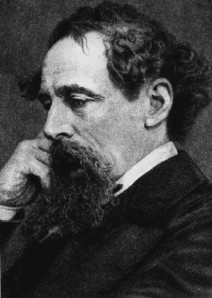Invisible Libraries: a Victorian Contribution July 17, 2010
Author: Beach Combing | in : Modern , trackback
There is a respectable literary tradition dating back to the end of the Middle Ages of scholars, writers and fantasists creating libraries of books that might or that should have once existed. To the best of Beachcombing’s knowledge this tradition begins – where else? – with Rabelais in the sixteenth century where we are introduced to such invented classics as How a Vision of Saint Gertrude Appeared to a Nun at Poissy When She Went into Labor, Folk Dances for Heretics and the unforgettable – believe Beachcombing when he says that he has tried – How Virgins Shit.
Its most brilliant exponent was the English antiquarian Thomas Browne in his Musaeum Clausum that includes a war diary of Hannibal and Josephus’ history in Hebrew! Borges scattered some references through his works, though his ‘universal library’ is a let down. Then in more recent times Neil Gaiman described ‘a library of dream’ – Beachcombing has his comic collection in another country but he seems to remember ‘The Man who was September’ by G.K. Chesterton.
This is clearly a rare genre and so Beachcombing is always overjoyed when he comes across a new example, however modest. Today reading on the bus he stumbled on a reference to Dickens’ invisible library, a library that had been entirely unknown to him. It is more Rabelais with Victorian sensibilities than Browne with Victorian learning. But some of it made Beachcombing smile and it is also the only invisible library known to Beachcombing that was, in some senses, visible. Would that it were still there…
When, it seems, Dickens moved into Tavistock House in Bloomsbury the great English author disguised the door of his study to look like a series of book shelves with Dickens’ own choice of titles painted on. These included Hansard’s Guide to Refreshing Sleep, The Gunpowder Magazine (get it?), History of a Short Chancery Suit in twenty-one volumes, Five Minutes in China (three volumes), Socrates on Wedlock, King Henry the Eighth’s Evidences of Christianity, Cat’s Lives (naturally nine volumes), Noah’s Arkitecture, and the series The Wisdom of Our Ancestors: I Ignorance, II Superstition, III The Block, IV The Stake, V The Rack, VI Dirt, and VII Disease with a short accompanying volume entitled The Virtues of Our Ancestors.
Would Mark Twain have done this even more wittily?
Any other invisible libraries would be gratefully catalogued by Beachcombing. Please write to drbeachcombingATyahooDOTcom As he was writing this Beachcombing got to thinking about Cervantes and invented books…



